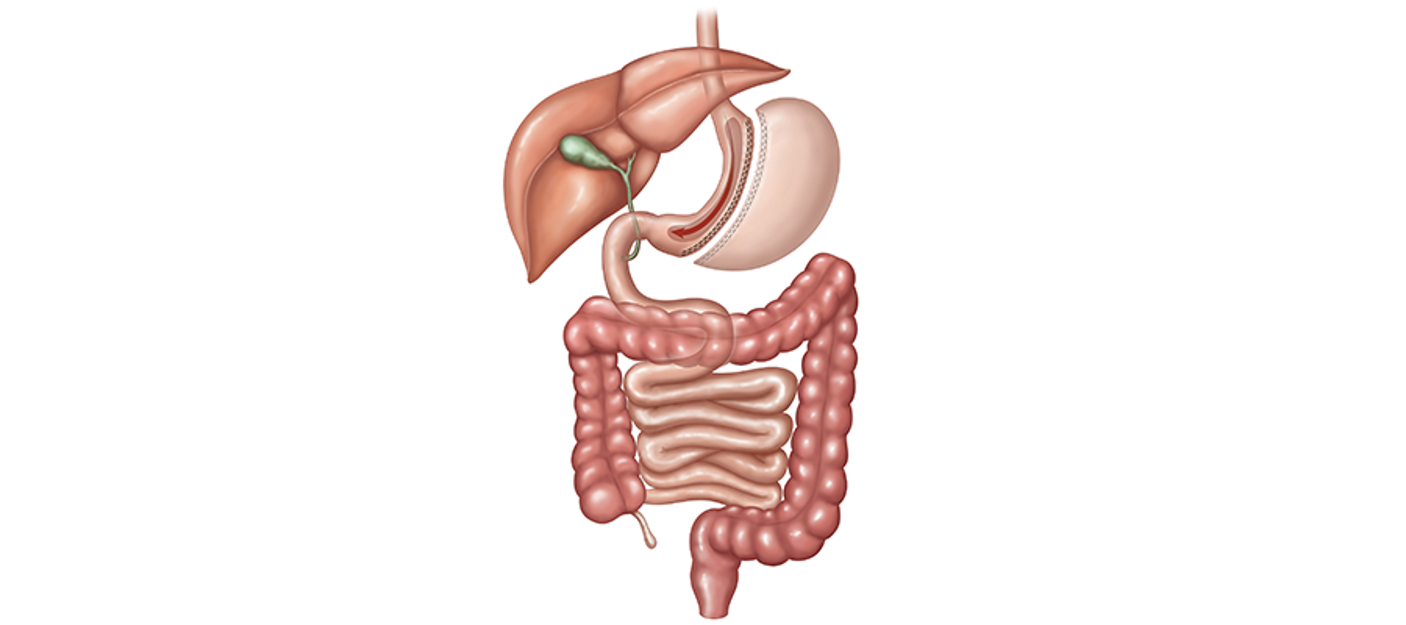Sleeve Gastrectomy is removing the larger curved part of the stomach and replacing it with tube stomach. Sleeve Gastrectomy was first offered for patients with severe obesity (BMI > 60 kg/m) as a surgical method. Sleeve Gastrectomy is technically easy to apply and it is not challenging for the patient. It is applied more and more each year around the world and has been increasingly popular compared to other methods.
It is a relatively easier method that doesn’t require multiple gastrointestinal anastomosis. It is also safer because it reduces the risk of diseases due to bowel knotting, protein and mineral absorption disorder. Antrum (the last part of the stomach) is sectioned approximately 2-6 cm from the pyloric (the opening from duodena to stomach) and the stomach is molded into a 32-40 Fr silicone tube to form a tube stomach. The tube is small (limited) in capacity, resistant to flexion due to the absence of the fundus (the upper part of the stomach), and now has only a few ghrelin cells (a gut hormone involved in the regulation of nutrition intake). Although Sleeve Gastrectomy is a restrictive method, there are changes in gastric mobility after surgery and it contributes positively to weight loss results.
Sleeve Gastrectomy can be regarded as a restrictive option in the treatment of high-risk patients with severe obesity with a one-off surgery rather than a technically more complex gastric bypass or biliopancreatic diversion. While reducing insulin resistance and assisting sugar management, Sleeve Gastrectomy leads to less starvation by reducing ghrelin levels and increasing GLP-1 and PYY levels.
The expected excess weight loss in 2 years is approximately 80%.

